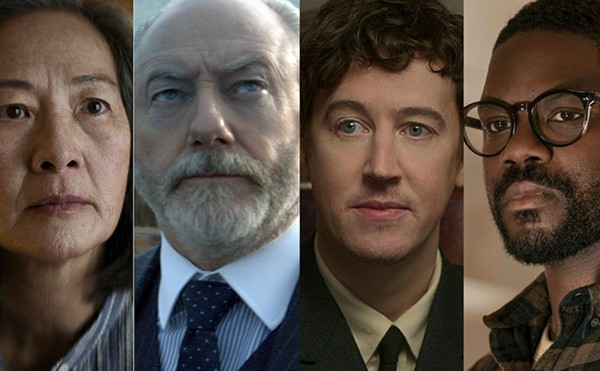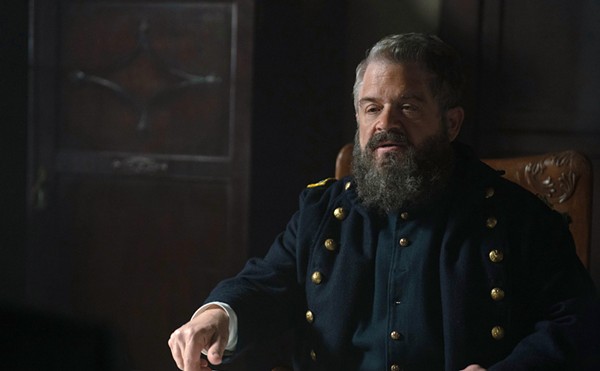Thelma and Louise' (the Movie) Starring Thelma and Louise (the Two Headed Turtle)
Picture this: You were born in San Antonio and moved away shortly after your fifth birthday. You studied theater in college and were ambivalent about your writing skills. Then, one day you had an idea. “This could be good,” you thought. So you wrote it all down. And won an Oscar and a Golden Globe on your first try.
Sounds like a fairy tale, but that’s exactly what happened to Callie Khouri, who won a Best Screenplay Academy Award for her acclaimed—and controversial—Thelma & Louise (1991, directed by Ridley Scott).
“It was surprising and incredibly confidence-building,” Khouri told the Current on the phone from Los Angeles. On Saturday, she’ll receive the Distinguished Screenwriter Award from the Austin Film Festival during a luncheon at the Austin Club (more info at austinfilmfestival.com). “I was thrilled [to win the Oscar], and then I was instantly like, ‘Now what? What do I do?’ It took me about four years to write the next one.”
Indeed, Thelma & Louise was a tough act to follow, and eventually she wrote Something to Talk About (1995), which earned mixed reviews, partly because of people’s expectations and partly because, well, writing good stuff isn’t easy.
“I don’t know if I’ll ever be able to top [Thelma & Louise], which is one of the things I try to come to grips with ... as a writer,” she said. “I tell myself, ‘You know, Callie, you don’t have to top it. You just have to do work that you love and are proud of. It’s not about having a competition with yourself, it’s about telling the stories you want to tell.’ I knew that it was going to be hard to follow up, and it was.”
But even if Thelma & Louise had been her only screenplay, that is one hell of a legacy. It showed two gun-wielding women determined not to take crap from any guy, all done with above-average wit. Yet, the movie’s success didn’t happen overnight. Early reviews were mixed and some (idiots) even called it “neo-nazi feminism.”
“[Those people] really saw something that wasn’t in there,” Khouri said. “A lot of men really seemed threatened by it. There were a lot of reviews about it being ‘overtly violent,’ which it clearly was not when you compare it to other films. Of course, I got a lot of pretty scathing reviews from women too, because Thelma and Louise weren’t ‘role models’ enough, which I find weird—there’s a double standard there. They only talk about ‘role models’ when there’s women or minorities.”
More importantly, Thelma & Louise should be mandatory study for any film course interested in teaching the art of how to use sex and guns in clever, original, edgy ways instead of the predictable drugs-guns-tits formula.
“Oh, yeah … The age-old question,” said Khouri about the mostly unimaginative ways guns and sex are used in every other movie. “I think guns and sex are the two areas where people are least likely to apply intelligence. Both things seem to come out of a place far less intellectual than you would hope.
People seem to be at the mercy of those things, instead of in control of [them]. I wish guns only existed in fiction. It is disheartening to see things play off so senselessly [in movies], but sadly no more senselessly as they do in real life. It’s so sad when you see the mayhem that happens in this country because of guns.”
For Something to Talk About, her second screenplay, she set out a challenge for herself: to write a movie without guns in it. But her reasons went beyond her personal opinion on guns—she was rebelling against screenwriters’ laziness.
“[After Thelma & Louise,] I knew why people put guns in movies—because you can easily turn the action instantly,” Khouri said. “You can take a character in or out, you can turn a hero into a villain. It’s such a convenient dramatic device.”
But Khouri opted for writing what she believed in, and followed with Divine Secrets of the Ya-Ya Sisterhood (2002) and Mad Money (2008), both of which she also directed. Since 2012, she has been the creator, producer and occasional director/writer of the Golden Globe- and Emmy-nominated Nashville, which airs on ABC. She didn’t win another Oscar, but she got something even better—being able to make a living writing about things she cares about.
“Nothing better than that,” she said. “To me, that’s the greatest gift a person can receive: to be able to work on what they love.”














